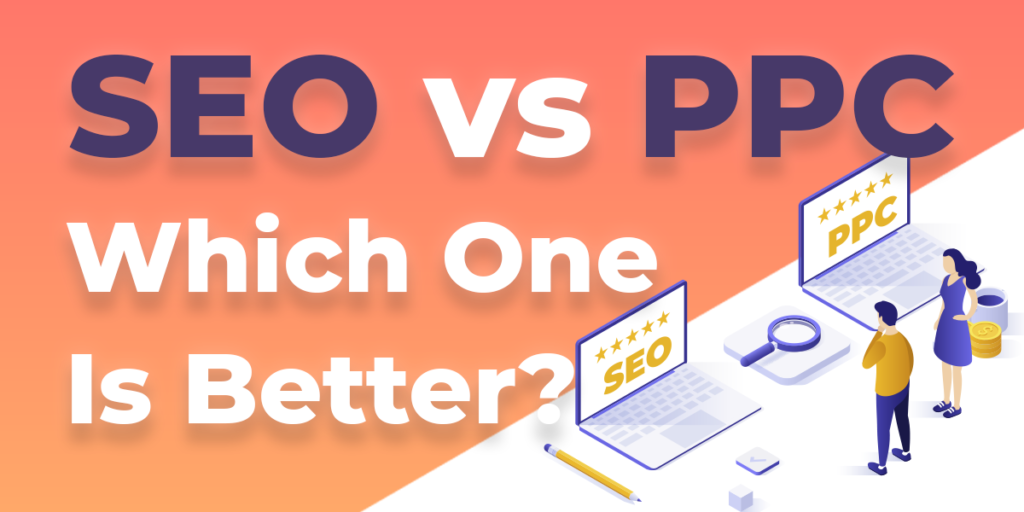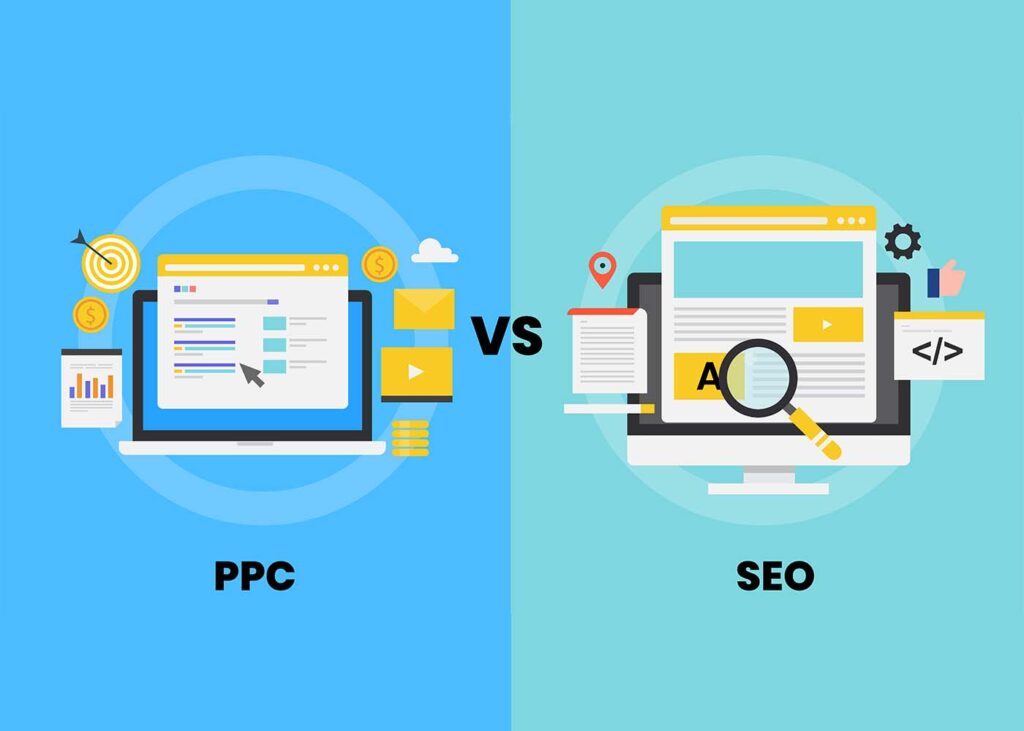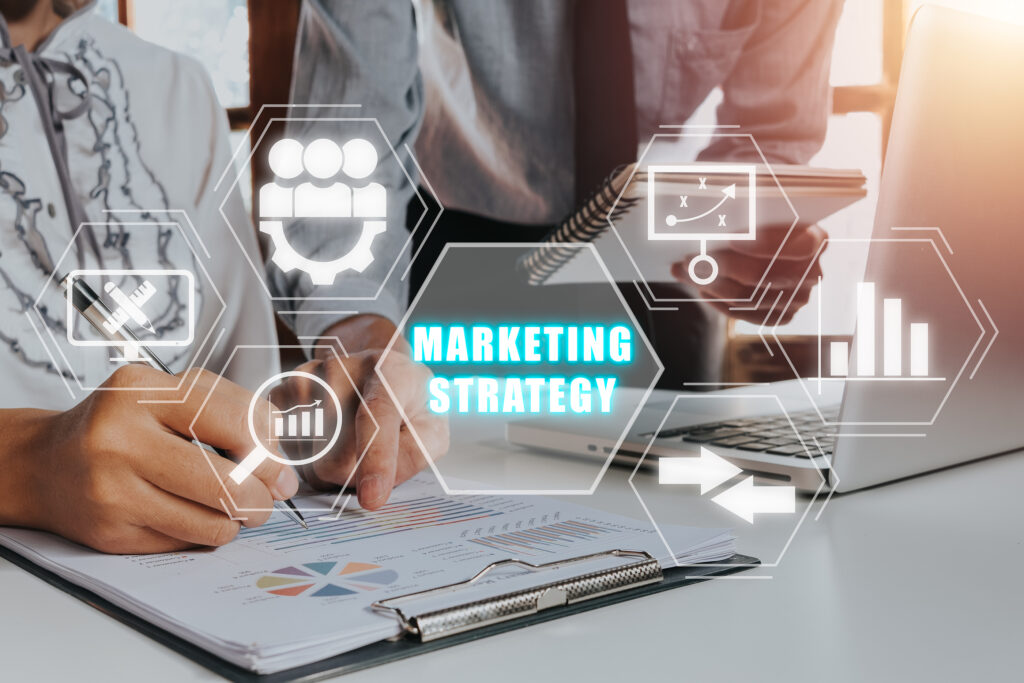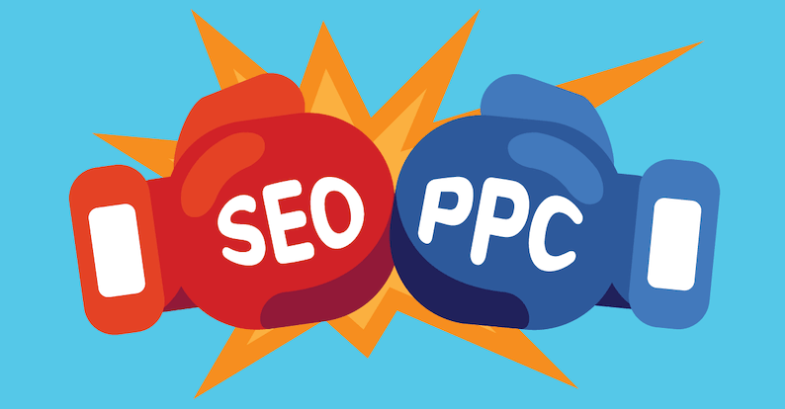Digital Marketing Strategy
Best Digital Marketing Agency in Pakistan. In the dynamic realm of digital marketing, businesses often grapple with the decision of whether to invest in Search Engine Optimization (SEO) or Pay-Per-Click (PPC) advertising. Both strategies aim to increase online visibility, drive traffic, and ultimately boost conversions, but they operate on distinct principles. In this comprehensive guide, we’ll explore the nuances of SEO and PPC, helping you make informed decisions about which approach—or combination—best aligns with Digital Marketing Strategy

Understanding SEO and PPC
SEO (Search Engine Optimization)
SEO is the practice of optimizing your website and its content to improve its visibility in organic (non-paid) search engine results. The goal is to rank higher for relevant keywords, attracting users who are actively searching for information, products, or services.
Key components of SEO include:
- On-Page Optimization: Fine-tuning individual pages for keywords, meta tags, and content quality.
- Off-Page Optimization: Building high-quality backlinks from reputable websites to enhance authority.
- Technical SEO: Addressing website structure, speed, and other technical aspects to improve performance.
PPC (Pay-Per-Click) AdvertisingPPC is a form of online advertising where advertisers pay a fee each time their ad is clicked. It allows businesses to bid for ad placement in a search engine’s sponsored links when users enter relevant queries. Google Ads is a popular platform for PPC advertising.
Key components of PPC include:
- Keyword Research: Identifying relevant keywords to target in ad campaigns.
- Ad Creation: Crafting compelling ads with engaging copy and relevant keywords.
- Bid Management: Setting bid amounts for targeted keywords to compete for ad placement.
- Ad Tracking and Analytics: Monitoring campaign performance, clicks, and conversions.
Factors to Consider: SEO vs. PPC1. Cost Considerations
SEO: While the initial costs of implementing SEO strategies may be lower compared to PPC, it’s important to recognize that SEO is a long-term investment. Results may take time to materialize, but the ongoing benefits can be substantial without incurring per-click costs.
PPC: PPC involves immediate costs for each click, and budgets can be depleted quickly, especially in competitive industries. However, it provides instant visibility and control over spending.
2. Speed of Results
SEO: Achieving top rankings in organic search results takes time, often several months. It requires patience and consistent efforts, making it ideal for businesses with a long-term marketing outlook.
PPC: PPC offers immediate visibility. Once a campaign is set up, ads can appear at the top of search results almost instantly, making it an excellent choice for quickly attracting targeted traffic.
3. Long-Term vs. Short-Term Strategy
SEO: SEO is a long-term strategy that builds a sustainable online presence. It continues to generate organic traffic even when ad budgets are paused.
PPC: PPC is a short-term strategy that provides immediate results but stops delivering traffic once the advertising budget is exhausted.
4. Click Costs and Budget Control
SEO: Organic clicks from SEO efforts are free, but the costs associated with implementing SEO strategies, such as content creation and technical optimizations, should be considered.
PPC: PPC involves direct costs per click, giving advertisers control over daily or monthly budgets. This control allows for more predictable spending.
5. Authority and Credibility
SEO: High organic rankings contribute to a website’s authority and credibility. Users often trust organic search results more than paid ads.
PPC: PPC ads can lack the perceived authority of organic listings, but they offer immediate visibility at the top of the page.
6. Targeting Capabilities
SEO: SEO relies on optimizing for specific keywords, and targeting is limited to the content and structure of your website.
PPC: PPC provides granular targeting options, including demographics, location, device, and even the time of day. This precision allows for highly targeted campaigns.
7. Adaptability and Testing
SEO: Changes to SEO strategies may take time to show results. Testing different approaches can be a gradual process.
PPC: PPC campaigns can be adjusted in real-time. Ad copy, keywords, and targeting parameters can be tested and optimized for better performance quickly.
8. Click-Through Rates (CTRs) and Conversion Rates
SEO: Organic results often receive a higher click-through rate, as users perceive them as more trustworthy. However, conversion rates can vary.
PPC: PPC ads can achieve high click-through rates, especially when well-crafted. Conversion rates are trackable, providing insights into campaign effectiveness.
Combining SEO and PPC for Synergy
While businesses often face the SEO vs. PPC dilemma, integrating both strategies can yield synergistic benefits. Here’s how:

1. Maximize Visibility
Combining SEO and PPC ensures that your brand dominates both organic and paid search results, maximizing visibility. Users are more likely to notice and engage with your brand when it appears in multiple positions on the search engine results page.
2. Keyword Insights
PPC can provide valuable insights into the performance of specific keywords. This data can inform your SEO strategy, helping you focus on high-performing keywords for organic rankings.
3. Seasonal Campaigns
Use PPC for short-term promotions, events, or seasonal campaigns where immediate visibility is crucial. Simultaneously, maintain ongoing SEO efforts for sustained long-term growth.
4. Testing and Iteration
PPC allows for rapid testing of ad copy, landing pages, and keywords. Insights gained from PPC experiments can inform and enhance SEO strategies over time.
5. Remarketing Opportunities
PPC enables remarketing campaigns, reaching users who have previously visited your website. This can complement SEO efforts by re-engaging potential customers.
6. Budget Flexibility
Allocate budgets strategically based on campaign goals. Use PPC when immediate traffic is essential, and leverage SEO for sustained, cost-effective visibility.
7. Enhanced Local Presence
Combine local SEO efforts with geographically targeted PPC campaigns to dominate local search results, especially valuable for brick-and-mortar businesses.

Best Digital Marketing Agency in Pakistan .Strategy Business concept, Business team crew working with Marketing Strategy icon on virtual screen, Analyze market stock,strategy.
ConclusionUltimately, the choice between SEO and PPC—or a combination of both—depends on your business objectives, timeline, and budget constraints. Recognizing the strengths and limitations of each approach empowers you to make informed decisions that align with your unique goals.
In many cases, an integrated strategy that leverages the strengths of both SEO and PPC can provide a comprehensive and effective digital marketing solution. Whether you prioritize long-term organic growth or seek immediate visibility, understanding the dynamics of SEO and PPC allows you to craft a strategy that best suits your business needs.
I hope we can explain Digital Marketing Strategy in a better way.


